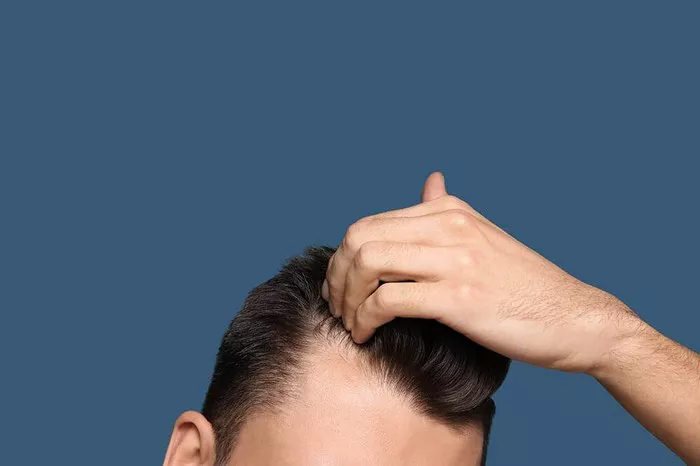Alopecia, a broad term encompassing various forms of hair loss, can be a distressing condition affecting individuals of all ages and genders. Understanding the factors that can exacerbate alopecia is crucial for those seeking to manage and mitigate the impact of this condition on their hair health. In this comprehensive article, we will explore the diverse elements that can contribute to the worsening of alopecia and offer insights into how individuals can address these challenges effectively.
1. Genetic Predisposition: The Uncontrollable Factor
Genetics play a pivotal role in the development of alopecia, with hereditary factors often being the primary contributor. If individuals have a family history of alopecia, they may inherit a genetic predisposition that makes them more susceptible to experiencing hair loss. Unfortunately, this factor is beyond one’s control, and those with a familial history of alopecia may find themselves more prone to the condition.
2. Hormonal Imbalances: A Complex Web
Hormonal imbalances can significantly influence the progression of alopecia. Conditions such as polycystic ovary syndrome (PCOS), thyroid disorders, and hormonal fluctuations during pregnancy or menopause can contribute to disruptions in the normal hair growth cycle. Hormonal changes may trigger the onset of alopecia or exacerbate existing conditions, making it crucial to address underlying hormonal imbalances through consultation with healthcare professionals.
3. Age-Related Changes: An Inevitable Evolution
The aging process can impact various aspects of health, and hair is no exception. Age-related changes, including hormonal fluctuations and a decrease in the regenerative capacity of hair follicles, can contribute to the worsening of alopecia. While aging is a natural and unavoidable part of life, individuals can adopt proactive measures to support overall hair health as they age.
4. Medical Conditions and Medications: Compounding Factors
Certain medical conditions and medications can exacerbate alopecia or even be direct causes of hair loss. Chronic illnesses, autoimmune disorders, and treatments like chemotherapy are known to have hair-thinning side effects. Additionally, medications for conditions unrelated to hair loss, such as anticoagulants or certain antidepressants, may contribute to the worsening of alopecia. Individuals undergoing medical treatments should discuss potential side effects with their healthcare providers and explore alternative medications whenever possible.
5. Lifestyle Factors: Stress and Poor Nutrition
Stress, often referred to as the “silent killer,” can manifest in various ways, including hair loss. Chronic stress triggers hormonal imbalances, leading to conditions such as telogen effluvium, a form of temporary hair loss. Poor nutrition, characterized by deficiencies in essential vitamins and minerals, can also contribute to weakened hair health. Adopting stress management techniques and maintaining a balanced diet are crucial steps in mitigating the impact of these lifestyle factors on alopecia.
6. Traction Alopecia: Beware of Hairstyles
Traction alopecia, a form of hair loss caused by excessive tension on the hair, can worsen alopecia, especially in individuals already predisposed to hair thinning. Tight hairstyles, including braids, ponytails, or extensions, can pull on the hair follicles, leading to breakage and hair loss. Being mindful of hairstyling choices and avoiding excessive tension on the hair can help prevent further damage and minimize the worsening of alopecia.
7. Environmental Factors: Pollution and UV Exposure
Environmental factors, such as exposure to pollution and ultraviolet (UV) radiation, can contribute to the worsening of alopecia. Airborne pollutants may lead to inflammation and oxidative stress on the scalp, affecting the health of hair follicles. UV exposure, while essential for vitamin D synthesis, can also damage the hair shaft and exacerbate hair loss in individuals with a predisposition to alopecia. Protecting the scalp and hair from environmental stressors, such as wearing hats or using protective styling products, can help mitigate these effects.
8. Unhealthy Haircare Practices: A Hidden Culprit
Certain haircare practices, often performed with the intention of maintaining hair health, can inadvertently worsen alopecia. Excessive use of heat styling tools, aggressive brushing, and chemical treatments can weaken the hair shaft and contribute to hair loss. Adopting a gentle and mindful approach to haircare, including using heat protectants and avoiding harsh chemicals, can promote healthier hair growth.
See Also: Can Swimming Cause Hair Loss: Things You Need To Know
Conclusion: Empowering Individuals to Navigate Alopecia
In conclusion, while some factors contributing to the worsening of alopecia are beyond one’s control, there are proactive measures individuals can take to address and mitigate the impact of this condition. Understanding the intricate interplay of genetic, hormonal, environmental, and lifestyle factors empowers individuals to make informed choices about their hair health. Seeking guidance from healthcare professionals, adopting stress management techniques, and embracing healthy lifestyle practices can collectively contribute to a more resilient and vibrant head of hair, allowing individuals to navigate the challenges of alopecia with confidence.


